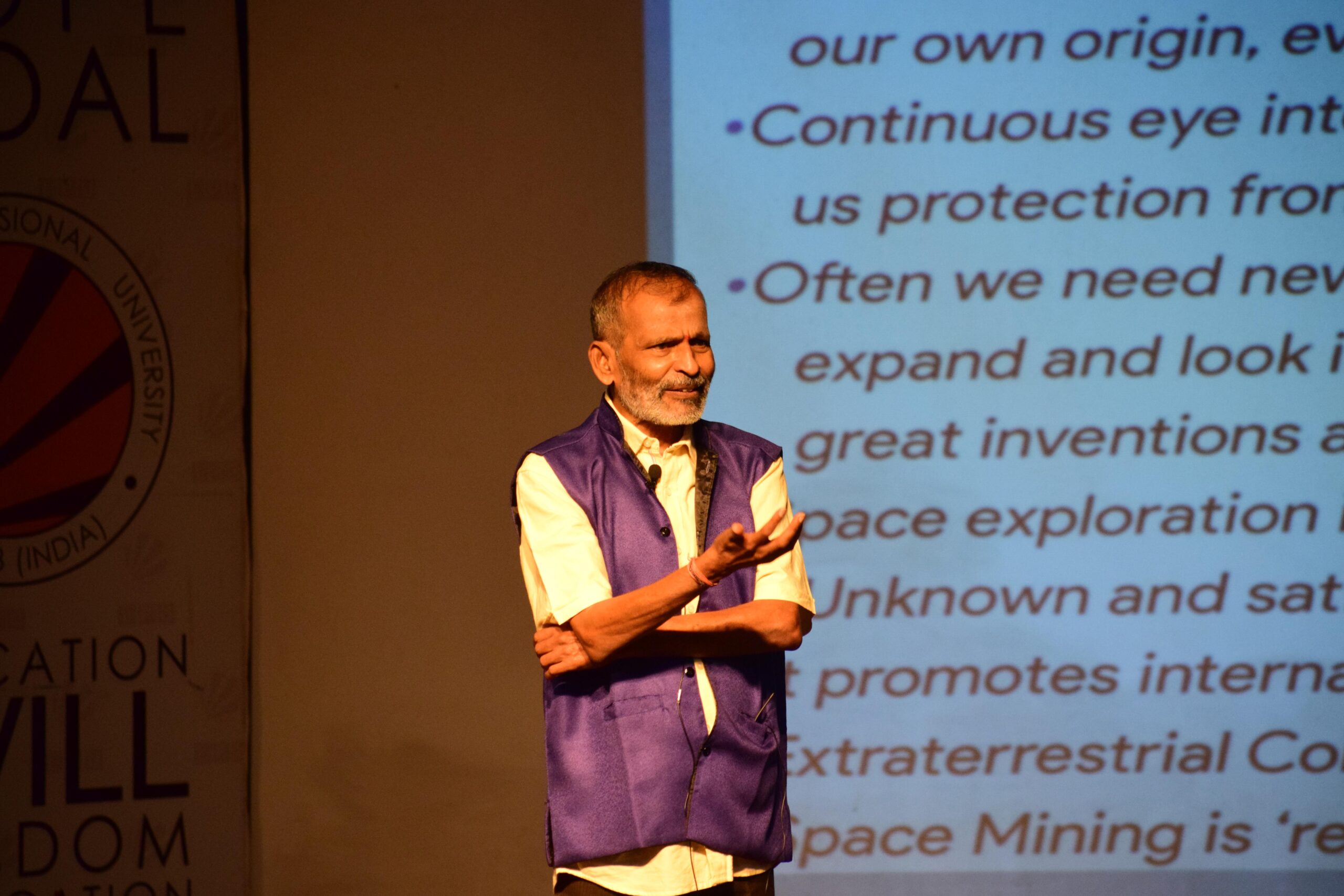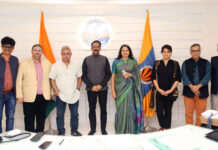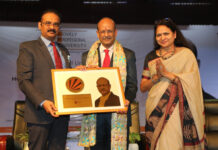LPU recently hosted former Mission Director for Indian Communication & Meteorological Satellite Systems at ISRO, Sundaramurthy T K. Addressing and interacting with aerospace engineering students of LPU’s School of Mechanical Engineering; he shared valuable insights at Shanti Devi Mittal Auditorium of the university. The elite guest discussed the challenges involved in human spaceflight missions. He also highlighted that India will soon become the fourth nation to conduct an independent human spaceflight, following Russia, USA, and China.
Commencing the interactive technical session, Sundaramurthy provided a comprehensive overview of the ‘Indian Human Spaceflight Program (IHSP)’ initiated in 2007 by ISRO. He explained that the program was designed to develop the technology needed to launch crewed orbital spacecraft into low earth orbit.
The session also covered India’s “Gaganyaan” project, which aims to demonstrate human spaceflight capability by launching a crew of three members to an orbit of 400 km for three days, followed by a safe return to Indian waters. This project has also enabled India to develop heat-resistant materials, technology, and procedures required for human space travel.
Apart from providing valuable knowledge and insights, Sundaramurthy’s visit also inspired LPU students to undertake further projects related to space missions. The interaction served as a great platform for LPU engineering students to explore various opportunities available at ISRO (Indian Space Research Organisation). His visit has indeed opened up new avenues of research and exploration for LPU students, leaving them motivated to pursue their dreams in the field of space exploration.
In fact, LPU has laid the main focus on practical learning. It has already made significant investments in space research with an installation of a state-of-the-art satellite ground station. Its researchers are devotedly working day and night toward the launch of LPU’s satellite. During one of the glorious achievements made by ISRO; its launch vehicle PSLV C53 carried three Singaporean satellites, along with LPU based alumni space tech startup- Digantara’s ‘Digital Space Weather Instrument’, which is the smallest in the world.


















